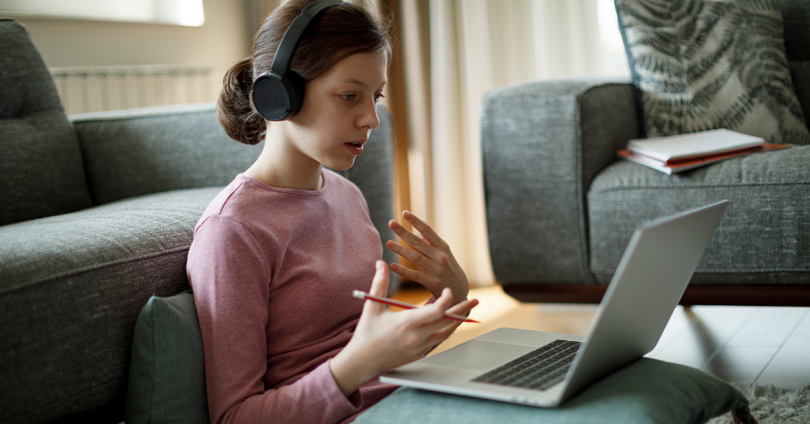Sterling* is 17 years old and says the pandemic is impacting young people in many ways.
“There’s nowhere to go. A lot of teens have been thrown off of their routines, or sleep schedules are messed up. Some people my age are terrified of getting COVID so they don’t leave their houses. Others have just lost motivation and don’t want to do anything – they just don’t care about things like they used to,” says Sterling.
“Social isolation, missed milestones, and decreased in-person interactions are some of the factors that are having a continued effect on youth mental health throughout this pandemic,” says Dr. Amy Cheung, youth psychiatrist in Sunnybrook’s Hurvitz Brain Sciences Program. “We’re seeing more youth with depression, anxiety, suicidal thoughts, among other symptoms. Young people are needing more support than ever before.”
Dr. Cheung says it is important for youth and families to reach out to their health-care teams when they need help.
“If a child is experiencing major changes in sleeping or eating habits, increased depression or anxiety, lack of motivation or enjoyment in activities over an extended period of time, for example, more than two weeks, it is time to connect with your family physician or pediatrician for support,” she says adding, “If a young person or family is in an emergency or crisis, it is important to go call 911 or go to your local hospital’s emergency department.”
Receiving mental health care virtually
The use of virtual care has grown throughout the pandemic, with many heath-care providers offering support to patients online or over the phone with physical distancing measures in place to help limit the spread of COVID-19.
“Virtual care has been a helpful tool to stay connected with patients. It can be effective in the continuation of patient care, monitoring of their treatment and the ability to adjust as needed,” says Dr. Cheung.
For Sterling, who has struggled with anxiety and depression over the years, the option for virtual care has been helpful especially during the pandemic.
“I still have support even if I can’t see my doctors in person,” says Sterling. “Plus, I don’t have to worry about driving to a bunch of places, getting stuck in traffic or parking. I am at home and it can be pretty convenient. And it’s helping.”
Preparing for your virtual care appointment: Tips & strategies
Dr. Cheung says it is beneficial for adolescents and youth to speak with their doctors privately in a virtual setting, just as they would in an office.
“Young people can get the most out of their appointment if they are able to speak openly, honestly and freely about what they’re going through,” she explains.
With families being at home during the pandemic, limited space, and other factors, it can be a challenge to find a private setting for a virtual appointment.
If finding a private room is not possible, request a phone call appointment and take your call just outside of the house. Try to find somewhere that you feel you can safely talk, for example, in the backyard or on the porch.
Parents and siblings can also wear headphones or turn on the television to create a bit of a ‘noise barrier’, to help provide the patient with more privacy during the appointment.
“It may take some planning for the patient to prepare for a virtual appointment,” says Dr. Cheung. “But for adolescents and teens the pandemic has been, and continues to be, an incredibly difficult experience. It is important to reach out for support whenever needed to help take care of your mental health.”
*Only first name is being used for patient privacy.
If you need help in an emergency, please call 911 or visit your local emergency department.
If you’re feeling like you’re in crisis or need somebody to talk to, please know that help is also available through community resources:
- Find a local crisis resource at sunnybrook.ca/gethelp
- Crisis Services Canada
- Phone: 24-hour, toll-free 1-833-456-4566
- Text: 45645 (4:00 p.m. – midnight Eastern Time)
- Kids Help Phone
- Phone: 24-hour, toll-free, 1-800-668-6868
- Text: 686868 (24 hours, 7 days a week)
[mks_button size=”large” title=”Mental health resources for coping during COVID-19 from Sunnybrook experts” style=”squared” url=”https://sunnybrook.ca/content/?page=mental-health-covid-19″ target=”_self” bg_color=”#2c55a6″ txt_color=”#FFFFFF” icon=”” icon_type=”” nofollow=”0″]








